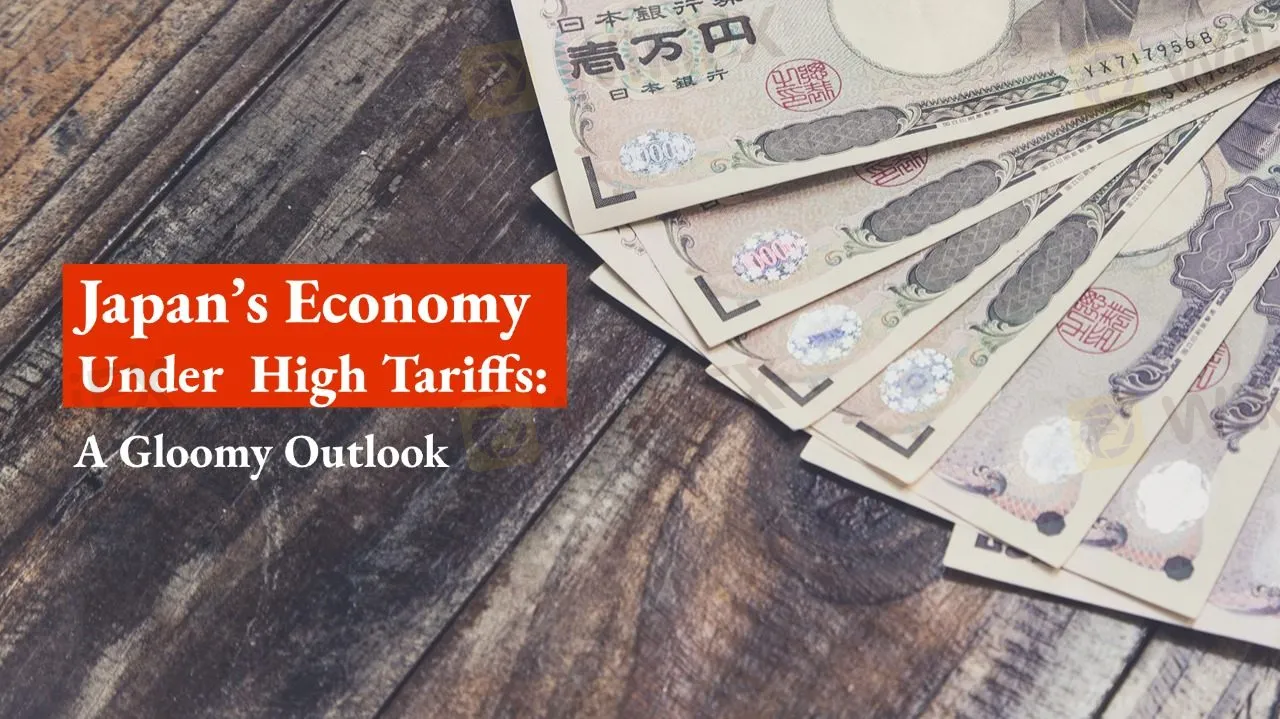简体中文
繁體中文
English
Pусский
日本語
ภาษาไทย
Tiếng Việt
Bahasa Indonesia
Español
हिन्दी
Filippiiniläinen
Français
Deutsch
Português
Türkçe
한국어
العربية
Japan’s Economy Under High Tariffs: A Gloomy Outlook
Abstract:Export restrictions, currency fluctuations, and upcoming tariff talks cloud Japan's economic outlook.

Japan's economy is currently navigating a period of heightened uncertainty, primarily driven by export challenges. As the automotive industry, which is crucial for Japan‘s exports to the U.S., faces tariffs as high as 25%, the country’s export-driven economy is under severe strain.
In addition to tariff pressures, fluctuations in the Japanese yen are raising concerns over the central banks next moves. Ahead of the upcoming trade talks between Japan and the U.S., Japan has made its stance clear, signaling its intent to hold firm and secure a better position in negotiations.
The economic challenges Japan faces go beyond tariffs. As semiconductor and AI hardware emerge as key points of contention in international trade, these sectors may also be affected by tariffs. Furthermore, the yens ongoing volatility complicates Japan's monetary policy.
If the Bank of Japan raises interest rates too quickly, it could harm corporate investment and consumer spending. Conversely, maintaining accommodative policies may lead to further depreciation of the yen and increased import costs. Policymakers are navigating a complex situation, where any misstep could have significant consequences for Japans recovery.
Uncertain Negotiations, A Need to Rebuild Policy Trust
Looking ahead, Japan faces challenges not only at the negotiation table but also in rebuilding domestic confidence in its economic policies.
The past perception of a “special relationship” with the U.S. under former Prime Minister Abe did not result in tangible protection, leaving the current leadership under greater scrutiny. The challenges Japan faces are no longer limited to trade numbers; they involve macroeconomic policy coordination and long-term strategic adjustments.
Balancing export competitiveness with domestic demand, while stabilizing the yen and controlling inflation, will be key issues for Japans economy moving forward.

Disclaimer:
The views in this article only represent the author's personal views, and do not constitute investment advice on this platform. This platform does not guarantee the accuracy, completeness and timeliness of the information in the article, and will not be liable for any loss caused by the use of or reliance on the information in the article.
Read more

Millions Have Been Lost Due to the Forex Scam! Hope You are Not a Victim!
The black money trail from illegal forex trading activities is deepening its roots across India. Let's find out some latest forex scam stories.

Should You Trade with an 800 Crore Scam-ridden OctaFX?
The Enforcement Directorate accused, OctaFX, a forex trading platform, of an INR 800 crore scam through its investigation. But are ED's claims true? Let's find out!

Markets4you Launches Global Giveaway to Celebrate 18th Anniversary
To mark its 18th anniversary, online trading platform Markets4you has introduced a global promotional campaign, aimed at recognising and rewarding its international client base. The campaign, which runs from 1 April to 30 June 2025, features a range of incentives designed to engage both new and existing users of the platform.

Weltrade: The Broker With Revoked Licences and a Failing Score
With revoked licences, misleading regulatory claims, and a dangerously low WikiScore, Weltrade may be exposing unsuspecting traders to far more risk than they realise. Here’s what every investor needs to know.
WikiFX Broker
Latest News
Know the history of "Bank of India" before Investing — then Trade Confidently
Gold Prices Waver as Fundamentals Remain in Tug-of-War
FCA Warning List is Out: Check if Your Broker is on the List
Trading via Unauthorized Brokers? A Penalty of Up to INR 2 Lakh Awaits You!
AMarkets is an Unregulated Broker | You Must Know the Risks
How to Choose the Right VPS for Forex Trading
Markets4you Launches Global Giveaway to Celebrate 18th Anniversary
Still Falling for BotBro’s 60% Annual Forex Returns? Wake Up Before It Gets Too Late!
Webull Adds Crypto Trading Through Kalshi Partnership
Investment Scam Exposed: Deepfake Videos of Top Indian Leaders & Tech Icons misused to Lure Investor
Currency Calculator


